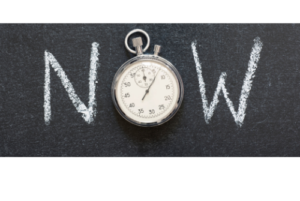
5 Ways To Manage Conflict In The Workplace
5 Ways To Manage Conflict In The Workplace Conflicts are a common occurrence in life, be it at home, in relationships, or at work. Conflict

5 Ways To Manage Conflict In The Workplace Conflicts are a common occurrence in life, be it at home, in relationships, or at work. Conflict

Do you start the day or does the day start you? Many emails to answer, meetings to attend, planning and organizing the day are some

A heavy workload and numerous deadlines would easily be one of the most stressful things about work. We live in an environment that demands quite a bit out of us and our ability. If you enjoy working to your fullest and find meaning in the work you do, then things are working out well for you. However, if you feel like work is hitting you even before you know it, and are caught up and pressurized, be assured, there are many others in the same boat! Well, sometimes, you cannot directly change the fact that you have a whole lot to do. However, you can, with gentle effort, try and make this just a little easier on yourself. We put up a post earlier that described 3 guidelines that would help you plan and anticipate your day better, to deal with a heavy workload.

The mind as we all know is a faculty within us that has the capacity to stray and wander. It does not stay with what is present. There is no wonder then that it has been compared with a wild elephant or an untamed monkey. I would say it’s like a hungry animal that needs stimulating food for its palate all the time. Whenever it doesn’t get enough interesting stuff, it searches in another place.

At times that’s all you need to do.
Pause is a way of nature, it’s part of the natural flow of life. After every breath you take in and let out – you pause, after every word you say you pause. In fact everything that seems like a seamless continuation is actually filled with numerous small pauses, coming together harmoniously to make us feel that everything is in continuity. The reel of a film has individual shots, each shot separate from the other. Our very cells have spaces – pauses – between them. Have u ever felt the need for this pause, this space?

Your alarm goes “trrrrrrrrrring” in the morning and your eyes are almost sealed shut.
Snooze.
Yet again “trrrrrrring”
Squirms, sighs, irritation.
You wake up to yet another day. Or yet another time-table? Let me narrate some more. Every hour of your day is like a timed, one-minute game. It’s all about speed, efficiency and energy and you are constantly feeling overworked.

Our lives today are full of noise – auditory, visual, tactile, cognitive etc. From honking cars, to bright neon billboards, uncomfortably tight clothing to endless worries, there is an overload of stimulus input from all these modalities. This understandably overworks and gradually exhausts our sense organs, our mind, our body and our very nerves.

Why do we suffer? Like a lot of you who would read this, I too ask the same question. Trying to answer that might lead us to an entirely philosophical and spiritual debate, which is not the aim of this piece. However, the question-what is the best way to diminish this suffering seems to often result in one answer-live in the now-in the present moment. This holds merit whether we arrive at it through the Zen or Buddhist path or through the Choice theory and Cognitive therapy path. And yet we find that living in the present is no easy task, although the present is all we have.

We specialize in combining psychotherapy with deep wellness practices like mindfulness and meditation and creating a customized mental health plan for individuals and organisations.
We specialize in combining psychotherapy with deep wellness practices like mindfulness and meditation and creating a customized mental health plan for individuals and organisations.

A young woman from another country moved with her family to live for one year in a town near the monastery. When, in the course of the year she discovered the monastery, she would periodically visit to have discussions with the Abbess. The Abbess introduced her to meditation, which became very meaningful for the young woman.
When the family’s year-long stay was drawing to an end, the young woman asked the Abbess, “In my country there is no Buddhism and no one has even heard about meditation. How can I continue to learn and deepen the practice you have started me on?”
The Abbess said, “When you return home ask far and wide for who, among the wise people, is recognized as having the greatest ability to listen. Ask that person to instruct you in the art of listening. What you learn about listening from such a person will teach you how to further your meditation practice.
― Gil Fronsdal, A Monastery Within: Tales from the Buddhist Path